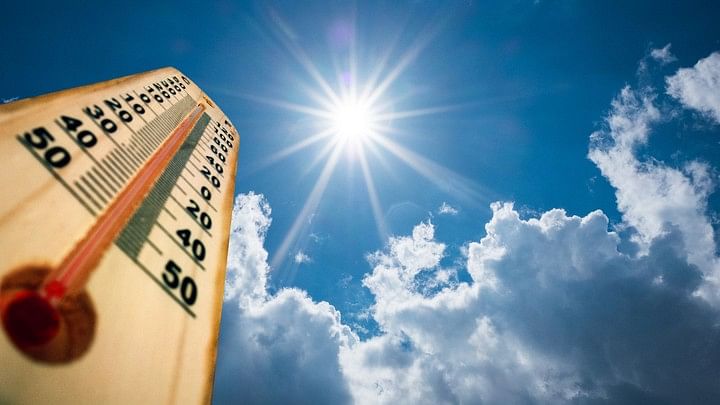
Climate change is making heat waves more frequent, more intense and longer-lasting. (Representative image)
Credit: iStock Photo
Srinagar: In a troubling development for the region, Jammu and Kashmir has recorded a 27 per cent deficiency in rainfall this year, raising concerns about potential water shortages and impacts on agriculture.
The shortfall, measured from January 1 to July 25, marks one of the driest periods in recent memory, with significant implications for farmers and residents alike. Kashmir is currently grappling with a rare heat wave triggered by day temperature that runs six degrees Celsius above the normal temperature.
The unusually high temperatures have affected life in the Himalayan valley where residents often experience relatively moderate temperatures and pleasant weather.
According to data in January and February this year, a deficient rainfall of 48% was recorded against the normal precipitation of 225.5 mm during the period, 117.1 mm rainfall was recorded only.
The rainfall situation improved from March to May with the Union Territory recording a deficient rainfall of 9 per cent only. During the period, 300.6 mm rainfall was recorded in J&K against the normal precipitation of 330.0 mm.
However, since June to July 25, a deficient rainfall of 33% has been recorded in the UT. Overall, there has been a deficiency of 27% rainfall in J&K.
“This deficiency in rainfall is alarming,” a climatologist at the University of Kashmir, said. “It not only affects agriculture but also has a ripple effect on water supply, hydroelectric power generation, and the overall economy of the region.”
The situation is exacerbated by the region's dependency on traditional farming practices, which are highly susceptible to fluctuations in weather patterns. Paddy, maize, and other staple crops are at risk, leading to potential food security concerns if the rains do not improve in the coming weeks.
Residents in urban areas are also feeling the pinch as water rationing has been introduced in several areas to conserve dwindling supplies. “We are facing water shortages, and it's becoming increasingly difficult to manage daily needs,” said Shazia Khan, a resident of Srinagar.
The deficient rainfall is part of a broader pattern of changing climate conditions that have been affecting the region. Experts warn that such anomalies could become more frequent due to global climate change, necessitating a more robust and adaptive approach to water and agriculture management in Jammu and Kashmir.